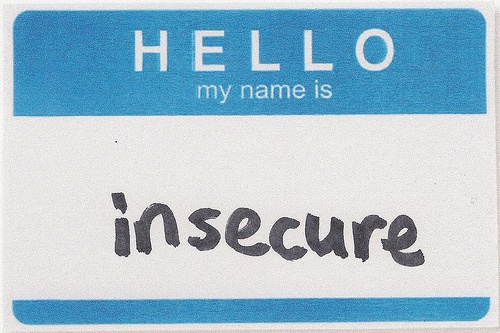By Charlotte Gleason
 Many of us store proof of our insecure, awkward years in photo albums, yearbooks, and painful school pictures. My hair-sprayed bangs and shoulder pads certainly grace too many childhood photos. But my sophomore year in high school truly introduced me to insecurity.
Many of us store proof of our insecure, awkward years in photo albums, yearbooks, and painful school pictures. My hair-sprayed bangs and shoulder pads certainly grace too many childhood photos. But my sophomore year in high school truly introduced me to insecurity.
At the close of my freshman year, my parents decided to move from the church parsonage where I had lived for 15 years to a home in a neighboring town. The short distance still meant a new neighborhood and a new school district. I remember feeling displaced, knowing I would have to work to re-establish the hard-earned place I had enjoyed in the public high school hierarchy. I leaned more heavily on my church friends, thankful for an established place.
But even this security faltered shortly after my 16th birthday. My dearest friend from church hydroplaned on her way to school, hitting a telephone pole. I remember walking with my father to her bedside in the hospital; she laid in a coma with a trachea tube helping her breathe. My father stood by her family as their pastor, and I stood by her as a best friend. Nothing felt secure.
Although she recovered, her accident and my sense of displacement reinforced patterns that continued to follow me into adulthood. I looked for security in human relationships, and I looked for security in accomplishment. But even today, I remain an insecure “middlescent,” attempting to find a place in the adult world.
Unfortunately, insecurity often follows me into church. It tells me where to sit, it tells me to avoid conversation for fear of rejection, and it tells me to protect my children from any slights and dismissals I perceive. Recently, I battled with God about my right to feel aggrieved during my Sunday afternoon walk. I spent a good portion of my walk justifying my resentment.
But God often quiets me in the middle of my rants. These questions entered my mind and sat there: What about your relationship with me? What if you invested this much energy into you and Me? The more I focused on the flesh, the more I neglected the spirit, or as Paul writes in Romans, I was living setting my mind “on the things of the flesh” (8:5).
Paul juxtaposes those who set their minds on the flesh with those who “set their minds on the things of the Spirit” (Romans 8:5). In the following verse, he uses two predicate nominatives to rename each type of mindset: “flesh is death,” but “the Spirit is life and peace” (Romans 8:6). As usual, Paul doesn’t “beat around the bush” here. My focus on the flesh takes my focus off of Christ, and insecurity finds an easy foothold in such a person.
The older I get, the more I realize nothing kills peace like insecurity. But God offers security even an awkward adult can accept. It’s high time I nurtured my relationship with God, confident in His steadfastness and His goodness – ultimate security.
